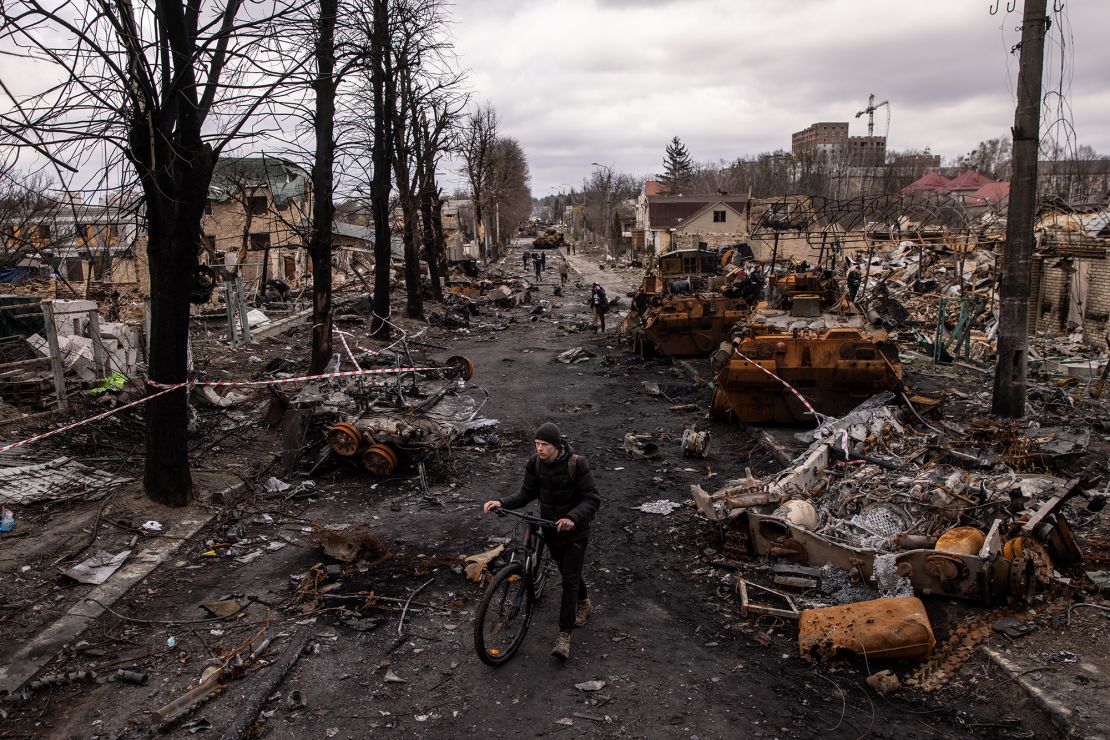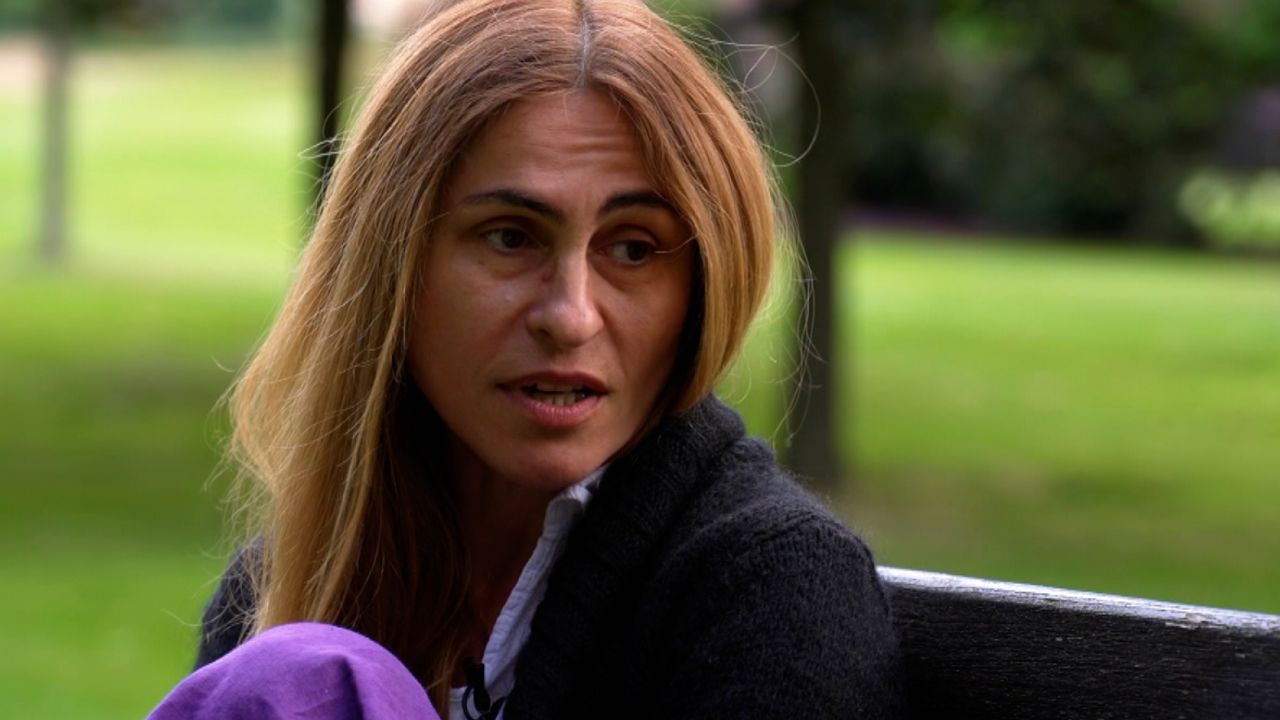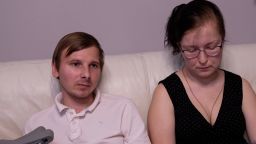It starts with a raised eyebrow and ends with a door slammed shut. A detail lost in translation, a wrong way to load a dishwasher, an awkward silence followed by a polite request to pack your bags.
CNN spoke to half a dozen newly-arrived refugees from Ukraine who have become homeless in the UK after their relationships with British hosts deteriorated, leaving them confused and isolated – and facing a daunting amount of red tape.
The scale of the problem is not yet clear. The UK government says 77,000 Ukrainians have arrived in the UK since the war started, through two different programs: the Ukraine Family Scheme, where Ukrainians can be hosted by relatives in the UK; and the Homes for Ukraine scheme, where Ukrainians find a local “sponsor” through friends, charities or even social media, and jointly apply for a visa. According to the UK government, “the overwhelming majority… are settling in well.”
However, new preliminary data collected by the UK government shows 660 Ukrainian households sought homelessness assistance from local authorities between February 24 and June 3. And that data does not tell the whole story. Social media groups for Ukrainian communities in London are awash with messages from people falling out with their UK hosts.
Almost a quarter of local authorities have yet to provide any data, and CNN has spoken to several refugees made homeless in those areas. Two striking accounts by unrelated women reveal significant gaps in the schemes designed to help them.
‘Good luck’ note
Natalia Arnautova, 28, from Odessa arrived alone in Reading, about 50 miles from London, in April. She was met at the airport by a couple in their fifties, whom she had contacted through a matching website, and who were sponsoring her visa under the Homes for Ukraine scheme. After a month of living together, the couple decided the arrangement was no longer working and asked her to leave. She says she was offered only one option by the local authority: A homeless hostel.
“The people who developed this program didn’t think through what happens in those cases when people don’t get on for some reason. And there are many reasons for things to go wrong,” she told CNN in a phone interview.
Arnautova accepts there were personality differences with her hosts, but says she was not expecting to have to move out. A translator working for the local council called her to break the news, Arnautova recalled.
“She said: ‘You have nowhere to live, they are evicting you tonight,’” she recalled. “I stood in shock, crying.” Arnautova said she tried to convince the council to give her a room in a hotel, but they wouldn’t. She turned down the hostel option because she didn’t feel safe.
She happened to be at a meet-up for Ukrainians in Reading, and was approached by one of the organizers, who, since it was a Friday evening, agreed to put her up for a few nights.
“I got back to an empty house and started packing,” she said. “They left me a note in my room, wishing me luck. No one saw me off, or asked me where I was going.”
Arnautova said the council made little effort after that: “Their day finished at 5 p.m. on a Friday. Two weeks later the council called to ask me where I was.” Wokingham Borough Council told CNN it doesn’t comment on specific cases.
Arnautova’s host, who asked to be named only as Adrian, told CNN there were some “minor issues in the property itself” that led to the breakdown in the relationship and that he wasn’t aware she was offered a homeless hostel. He thought she would be rematched with another host, he said.
“We sorted out all the documentation, doctors, National Insurance, residence permit interviews … It was a lot of work, so I was personally disappointed it didn’t work out,” he said. “I remember seeing the scenes on television and thinking we had to do something. We have a large home, a room available, so why not?”
Adrian added that he thought Arnautova’s “heart wasn’t in it” with regards to living in Reading, and that she wanted to be in London.

‘Lifeline’ offered
Russia’s invasion of Ukraine on February 24 sent shockwaves around the world. In response to a public outcry, the UK government launched the Homes for Ukraine scheme on March 14. A day later, 100,000 people had signed up to host. It was the start of one of the biggest refugee assistance schemes in British history.
UK Cabinet Minister Michael Gove said at the time that the scheme “offers a lifeline to those who have been forced to flee.”
The idea of a hosting scheme was, on the face of it, a good one, according to Sara Nathan, co-founder of the charity Refugees at Home, which has been matching refugees with hosts for the past seven years.
“I think our first reaction was, well thank goodness, it’s been appreciated that hosting people is a way forward,” she told CNN. “It’s a good way of integrating new arrivals, traumatized new arrivals.”
However, one key problem is rematching when placements break down, Nathan said.
The UK government says councils do now have access to a rematching system, which they should use only when a hosting relationship is deemed unsafe or unreliable.
But several charities told CNN that this facility came late, and remains inconsistent and difficult to access. Government data shows more than half of the Ukrainian households that have sought homelessness assistance are now in temporary accommodation.
‘One trivial thing’
When CNN first contacted Natalia Lymar, just days after she was asked to leave by her British hosts, she was unable to finish a sentence without tears. Originally from Bucha, the 49-year-old had survived days of bombardment, and a terrifying close encounter with a group of armed Russian soldiers in her home. This, she said, was worse.
“It upset me so much that I felt that I was going through more stress right now, when I understood I had to pack my bags, than I did in my basement in Bucha,” she told us two weeks later. “I felt like a stray kitten up for adoption.”

Lymar says she still doesn’t fully understand what went wrong with her first hosts.
“There was one trivial thing, and I didn’t even know what they weren’t happy with, then another, and even if they said something, it was with such a smile that I thought everything was okay,” she explained.
“People are not necessarily compatible,” Nathan said. “It doesn’t mean they’ve done anything awful and it doesn’t mean you are wicked. You may just not get on for six months, which is a long time.”
CNN was unable to reach Lymar’s sponsors to comment on this story, but a friend of hers, who had originally helped her match with them, confirmed she was asked to leave. Lymar and her friend tried to seek council assistance, but didn’t go through with the homelessness application because they couldn’t manage the paperwork.
Nathan says the government should have planned ahead for this kind of scenario. “On any exercise of this scale, there are going to be failures. There are going to be placements that don’t work. And there isn’t a coherent rematching scheme, which we would like to see.”
‘Cliff-edge’ looming
Charities warn that too much responsibility falls on local authorities. While still busy with safeguarding checks for placing new arrivals, local councils are also having to help when placements fall through, without much guidance from the central government.
“We really would like the government to put more money into this,” said Denise Scott-McDonald, a councilor in Greenwich, southeast London. “If we don’t, then there’s going to be an awful situation for so many people coming from a war zone being completely traumatized, being thrown into a system in which they don’t know what’s going on.”
Councils are already bracing themselves for a logistical “cliff edge” fast approaching even for those Ukrainians who are currently happy with their UK hosts.
Hosts under the Homes for Ukraine scheme were only asked to commit for six months. The worry is what happens around September, when the first arrivals start to hit that deadline.
“We’re [going to] be staring in the face of lots of families presenting themselves to all sorts of local authorities all around this country,” said Scott-McDonald. Greenwich is currently dealing with 19 cases in which placements have broken down.
Britain’s minister for refugees, Richard Harrington, has said he’s hopeful that they they will get jobs and eventually be able to rent their own accommodation. Home Secretary Priti Patel has also defended the scheme, saying the government is paying councils almost $13,000 per refugee.
Scott-Mcdonald says that after years of cuts to council budgets, and amid a cost-of-living crisis, that’s not enough. She also wants more communication from central government to spare councils the burden of doing it all alone. “We feel that the government did a knee-jerk reaction to the crisis,” she said, adding that this has resulted in “chaos” for the council staff and local residents trying to manage the system.
Surviving on their own
Both Ukrainian women with whom CNN spoke say they’re trying to find their way now without the support of the government scheme.
Lymar is living with a new host, found through a local WhatsApp group. It’s an ad hoc arrangement. CNN understands Lymar hasn’t been officially rematched with the new host under the Homes for Ukraine scheme.
Arnautova is staying with friends in London. She could ask to be rematched by the council where her previous hosts lived, but says she would rather stay in London, keep studying English, get a job, and eventually rent her own place.
“When I came here, I was fully confident that I would be protected for a minimum of six months, that I wouldn’t have to think about where to live, what to do,” she said.
“Why did this happen. Why did they leave me on the street?”



